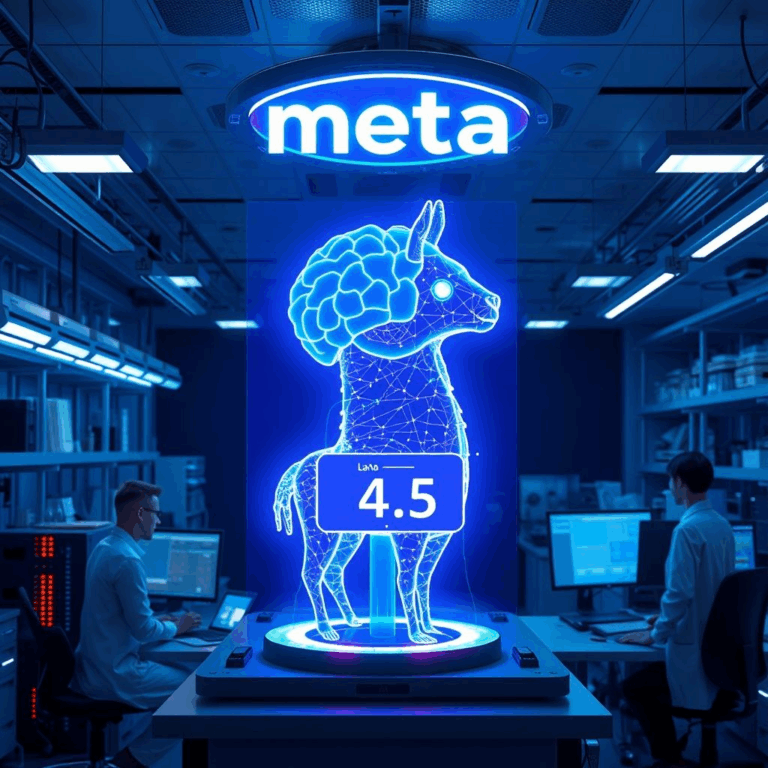Introduction
Google has taken a decisive step toward strengthening its presence in India’s fast-growing AI ecosystem by launching Gemini Flash AI India, a powerful, localized version of its large language model (LLM), Gemini 2.5 Flash. The rollout was officially announced during the Google I/O Connect India 2025 event held in Bengaluru, where the tech giant emphasized its commitment to empowering Indian developers through low-latency AI access and data-residency compliance.
This strategic move not only aligns with India’s emerging AI governance frameworks but also addresses long-standing concerns around latency, data sovereignty, and infrastructure gaps. For developers, startups, and enterprises across various sectors, Gemini Flash AI India represents an opportunity to build faster, safer, and locally optimized AI solutions.
The Context Behind Gemini Flash AI India
India is projected to become one of the top three AI markets globally by 2030. Yet, until recently, Indian developers working with generative AI models like GPT or Gemini faced a slew of challenges:
- Latency Delays: Hosting models overseas meant higher roundtrip latency for inference tasks.
- Regulatory Risks: With India’s upcoming Digital Personal Data Protection Act (DPDPA), using AI models hosted abroad posed legal and compliance risks.
- Infrastructure Limitations: A lack of localized tools and edge compute availability hindered AI scalability.
Google’s Gemini Flash AI India release solves these issues by hosting Gemini 2.5 Flash locally, giving developers access to the model in a way that is faster, safer, and regulation-compliant.
Key Features of Gemini Flash AI India
1. Data Residency Compliance
Gemini Flash AI India ensures that all data is processed within Indian borders, complying with emerging mandates under India’s DPDPA and Reserve Bank of India guidelines. This builds much-needed trust among enterprises in regulated sectors like finance, education, and healthcare.
2. Optimized Latency for Real-Time Applications
With onshore infrastructure, Google claims latency improvements of up to 3x for applications like voice assistants, smart customer service bots, and multilingual chat interfaces.
3. Sector-Specific APIs and SDKs
Google has released tailored AI Dev Kits that come with domain-optimized models, pre-trained embeddings, and integration guides for industries such as:
- Healthcare: Diagnostic reasoning, report generation, and medical Q&A.
- FinTech: Fraud detection, onboarding automation, and personalized recommendations.
- EdTech: Curriculum mapping, student analytics, and multilingual tutoring.
4. Indian Language Support
Gemini 2.5 Flash in India now supports over 12 regional languages, including Hindi, Tamil, Bengali, Kannada, and Marathi. The model can not only translate but also perform semantic understanding and generation in these languages.
Google’s Strategic Vision for India
The timing of the launch aligns with India’s push to become an AI manufacturing and research hub. Google’s initiative fits well into the government’s National Program on Artificial Intelligence, which emphasizes ethical AI, skilling, and data localization.
Speaking at I/O Connect India, Google Cloud’s India Head, Anil Bhansali, stated:
“Our goal is to democratize access to generative AI tools for every Indian developer, regardless of geography or scale. Gemini Flash AI India is our first step toward a robust, locally empowered AI ecosystem.”
Google also announced a partnership with Startup India and Digital India Innovation Fund to offer up to ₹5 crore in credits to startups building with Gemini Flash.
Developer and Industry Reactions
Within hours of the announcement, several startups and enterprises began testing the local Gemini infrastructure. Reaction across the developer community was overwhelmingly positive.
- Ritika Jain, CTO of a Pune-based health-tech firm: “Latency has dropped by over 50% in our internal benchmarks. We’re now building a patient-facing AI tool entirely on Indian infrastructure.”
- Rajeev Nair, Head of Engineering at a mid-size fintech startup in Chennai: “This is a game-changer. We can now meet both compliance and performance metrics using just Gemini Flash India.”
On social media platforms like LinkedIn and X (formerly Twitter), hashtags such as #GeminiIndia, #BuildWithGemini, and #IndiaAI were trending.
Impact on the Indian Tech Landscape
1. Empowering Tier‑2 and Tier‑3 Developers
With Gemini models hosted locally, developers from smaller towns no longer suffer from slow responses. This levels the playing field and encourages regional innovation.
2. Accelerating AI Startup Growth
Affordable pricing, combined with credit programs, makes it easier for AI-first startups to scale quickly using Gemini Flash.
3. Government Sector Adoption
Pilot projects are already underway to deploy Gemini AI in municipal governance—ranging from citizen query bots to traffic optimization systems.
4. Boosting Language AI Research
With Gemini Flash supporting multiple Indian languages natively, researchers can now fine-tune models for sentiment analysis, content moderation, and political discourse understanding across dialects.
Future Outlook: What Comes Next?
According to Google, this is just the beginning. Upcoming roadmap items include:
- Gemini Nano India: An ultra-lightweight version for edge devices and low-powered smartphones.
- AI Labs in Universities: Partnerships with institutions like IIT Bombay and IIIT Hyderabad to train the next generation of AI researchers.
- Gemini India Hackathons: Scheduled across 15 Indian cities in August–September 2025 to promote hands-on innovation.
Furthermore, Google is considering expansion into Southeast Asia and Sub-Saharan Africa using India’s rollout as the blueprint.







